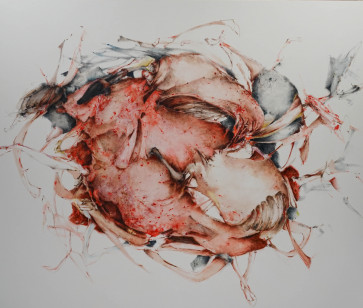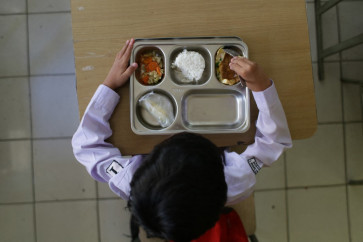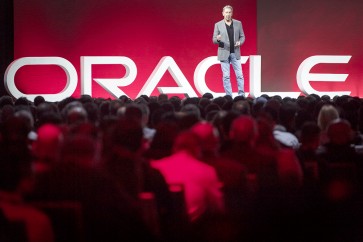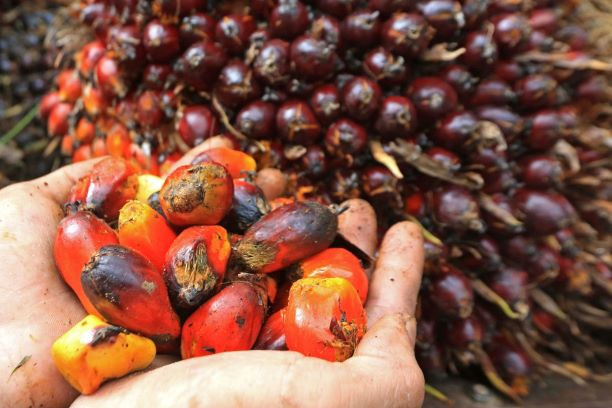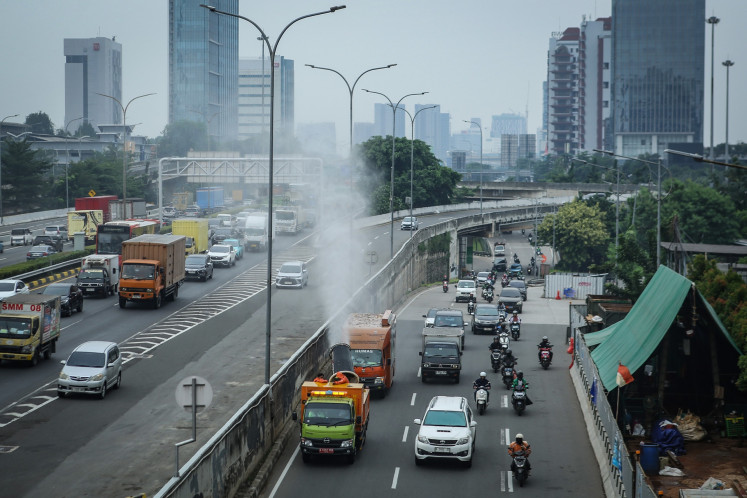Popular Reads
Top Results
Can't find what you're looking for?
View all search resultsPopular Reads
Top Results
Can't find what you're looking for?
View all search resultsScientist awarded for cancer therapy
Medical marvel: Neuroscientist Warsito Purwo Taruno (center) receives the Bacharuddin Jusuf Habibie Technology Award on Thursday for his contribution to cancer-detection technology
Change text size
Gift Premium Articles
to Anyone
 Medical marvel: Neuroscientist Warsito Purwo Taruno (center) receives the Bacharuddin Jusuf Habibie Technology Award on Thursday for his contribution to cancer-detection technology. Former Indonesian president BJ Habibie (left), who the award is named after, and Agency for the Assessment and Application of Technology (BPPT) head Unggul Priyanto (right) also attended the awarding ceremony.(JP/Seto Wardhana) (center) receives the Bacharuddin Jusuf Habibie Technology Award on Thursday for his contribution to cancer-detection technology. Former Indonesian president BJ Habibie (left), who the award is named after, and Agency for the Assessment and Application of Technology (BPPT) head Unggul Priyanto (right) also attended the awarding ceremony.(JP/Seto Wardhana)
Medical marvel: Neuroscientist Warsito Purwo Taruno (center) receives the Bacharuddin Jusuf Habibie Technology Award on Thursday for his contribution to cancer-detection technology. Former Indonesian president BJ Habibie (left), who the award is named after, and Agency for the Assessment and Application of Technology (BPPT) head Unggul Priyanto (right) also attended the awarding ceremony.(JP/Seto Wardhana) (center) receives the Bacharuddin Jusuf Habibie Technology Award on Thursday for his contribution to cancer-detection technology. Former Indonesian president BJ Habibie (left), who the award is named after, and Agency for the Assessment and Application of Technology (BPPT) head Unggul Priyanto (right) also attended the awarding ceremony.(JP/Seto Wardhana)
M
span class="caption">Medical marvel: Neuroscientist Warsito Purwo Taruno (center) receives the Bacharuddin Jusuf Habibie Technology Award on Thursday for his contribution to cancer-detection technology. Former Indonesian president BJ Habibie (left), who the award is named after, and Agency for the Assessment and Application of Technology (BPPT) head Unggul Priyanto (right) also attended the awarding ceremony.(JP/Seto Wardhana)
The government presented the Bacharuddin Jusuf Habibie Technology Award to neuroscientist Warsito Purwo Taruno on Thursday for his inventions that are used as a treatment for cancer.
'Innovation is important to face current and future challenges. By using and creating technology, we can improve public facilities and boost local competence,' said Agency for the Assessment and Application of Technology (BPPT) head Unggul Priyanto during the awards ceremony at the BPPT building in Central Jakarta on Thursday.
Warsito has developed devices that produce low-voltage electrostatic waves that have been proven as an effective cancer treatment.
Unggul said that although Warsito has been facing controversy in using his inventions in Indonesia, the government promised to keep working with him to make full use of his research.
Warsito, who was born in a farming family in Surakarta, Central Java in 1967 and was awarded a place in the Habibie Fellowship Program to travel to Japan in 1987, invented the electrical capacitive cancer therapy (ECCT) device in 2009 and patented his electrical capacitance volume tomography (ECVT) technology in 2005.
He claimed that a number of hospitals and clinics in Poland had been using his therapy devices to treat brain tumours and breast cancer and prominent organizations in Japan and the United States had been using the tomography technology.
'ECCT is a therapy device in the form of clothing that spreads electrostatic waves that hamper the growth of cancer cells. The wave has a maximum voltage of 15, hence it has no dangerous radiation,' he said.
Patients also flock to his Center for Tomography Research Laboratory (CTECH Labs) Edwar Technology in Serpong, Banten, seeking the alternative cancer treatment.
However, the use of the therapy in Indonesia has faced controversy from the Indonesian Society of Surgical Oncology on the grounds that the device has not been clinically trialed in Indonesian hospitals.
'New things usually create controversy, but I see this award as a sign of the change that we'll see here in the future,' said Warsito, who studied chemical engineering and earned his doctorate from Shizuoka University in Japan. He also conducted postdoctoral research on tomography at Ohio State University in the US.
He added that the Health Ministry has been testing his inventions for a possible partnership in the future. The tests using the device showed a 78 percent success rate.
The tomography device, meanwhile, is an invention that allows electrostatic wave to detect fast-moving particles. The technology has been used for various purposes in medical and industrial settings.
'In a medical context, the ECVT [a helmet with 32 electro nodes] can reveal the condition of the brain, so it can detect cancer, alzheimer's or epilepsy,' said Warsito, who is also a medical physics lecturer in the University of Indonesia.
NASA has also been using ECVT to detect dew on the body of space shuttles that can be dangerous during take off. It is also used by Morgantown National Energy Technology Laboratory in the US for electricity generation.
In Japan, the technology is also used by a number of gasoline production companies to measure how much catalyst should be added speed up the change of petroleum to gasoline.
The Bacharuddin Jusuf Habibie Technology Award is an award given by the BPPT to Indonesians who make technological or scientific inventions with real-world applications. The agency has given the award to 10 scientists since 2008. (rbk)

